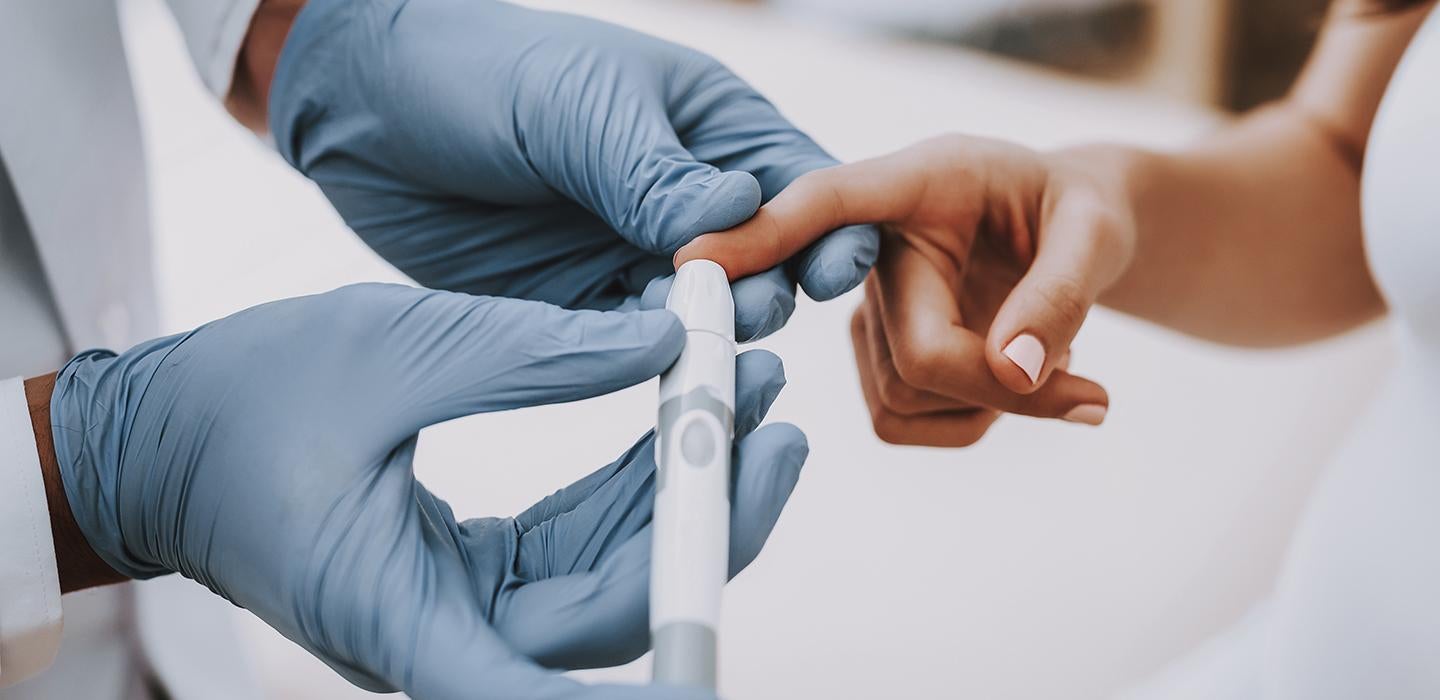
Subscribe to Pittwire Today
Get the most interesting and important stories from the University of Pittsburgh.Although disparities do exist within the United States, many children with Type 1 diabetes in this country can live long, healthy lives thanks to modern diabetes care, including long-acting synthetic insulin. Unfortunately, this type of insulin isn’t available for much of the global population, in part because its effectiveness hasn’t been well documented in contrast to other treatment options.
Pitt has received a $3.5 million grant from The Leona M. and Harry B. Helmsley Charitable Trust to conduct a trial to address this knowledge gap. Jing Luo, assistant professor of medicine in the Division of General Internal Medicine at Pitt, will serve as the primary investigator.
Luo, who is also a faculty member in Pitt’s Center for Pharmaceutical Policy and Prescribing, will work with co-investigator Sylvia Kehlenbrink, a clinical endocrinologist and director of the Program on Global Endocrinology at Brigham and Women’s Hospital, to examine how long-acting insulin compares to older, less expensive, naturally occurring human insulins.
Repeated attempts to add long-acting insulin to the World Health Organization’s Model List of Essential Medicines, which is a list of minimum medicine needs for a basic health care system, have been rejected for lack of evidence. While it did eventually make the list in October 2021, experts remain divided on the decision and have called for more data about long-acting insulin’s effectiveness both in terms of cost and clinical impact.
That’s the problem Pitt and collaborators aim to solve.
Unlike with Type 2 diabetes, people with Type 1 diabetes require insulin for survival. The condition can pose a number of issues, including organ and nerve damage. In settings of food insecurity, the available insulin treatments may actually increase the risk of severe hypoglycemic events — low blood glucose levels — which can be fatal.
“We are thrilled we have Helmsley’s support on such an important research project,” said Luo. “This grant is an acknowledgement of the global diabetes crisis we are facing and the confidence in our partnership between world-class institutions to generate concrete evidence that may improve the lives of thousands of youth across the world.”
The team plans to conduct a trial involving 400 participants to compare a long-acting modern insulin against an intermediate-acting human insulin using continuous glucose monitors to measure the time patients are within and below a healthy glucose range. The overall goal is to generate high-quality evidence of the potential clinical benefits and cost-effectiveness of long-acting, or analogue, insulins. Other research partners include the not-for-profit organization Life for a Child, the London School of Hygiene & Tropical Medicine (LSHTM) and the Clinton Health Access Initiative (CHAI).
Additional research partners include Bedowra Zabeen, pediatric endocrinologist at the Bangladesh Institute of Research and Rehabilitation in Diabetes, Endocrine and Metabolic Disorders; Bruce L. Rollman, director of the University of Pittsburgh Center for Behavioral Health, Media, and Technology; and Andrew Althouse, a statistician at the Center for Clinical Trials and Data Coordination in Pitt School of Medicine’s Division of General Internal Medicine.
Together, their research has the potential to drastically improve care for thousands of children and young adults across the world.
“The abundance of long-acting insulin analogues in high-income countries and their scarcity in countless low- and middle-income countries is a clear case of inequity,” said Estefania Palomino, program officer for the Helmsley Charitable Trust’s Type 1 Diabetes Program. “At Helmsley, we believe that geography should have zero impact on health outcomes. The University of Pittsburgh, Life for a Child, LSHTM and CHAI are ideal partners as we do work to ensure that all who could benefit from this type of insulin as they try to manage this disease are able to do so.”
The Leona M. and Harry B. Helmsley Charitable Trust aspires to improve lives by supporting exceptional efforts in the United States and around the world in health and select place-based initiatives. Since beginning active grantmaking in 2008, Helmsley has committed more than $3 billion for a wide range of charitable purposes. The Helmsley Type 1 Diabetes Program is one of the largest private foundation funders of T1D in the nation focused on understanding the disease, developing better treatments and improving care and access in the United States and low- and middle-income countries.
— Maria Costanza


